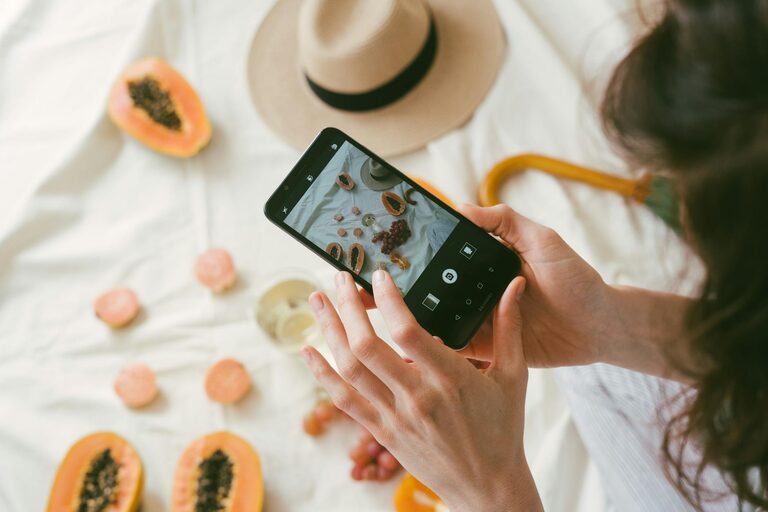Beginner Tips for Taking Better Phone Photos

Taking great photos with your phone is easier than you might think. Whether you want to capture memories, share moments on social media, or just have fun experimenting, these beginner tips will help you take better phone photos right away. In this post, we’ll explore practical advice, from understanding your phone’s camera settings to mastering composition and lighting.
Understanding Your Phone Camera
Before diving into techniques, it’s important to get comfortable with your phone’s camera features.
Explore Camera Settings
– Resolution: Higher resolution photos have more detail, but they take up more space.
– Gridlines: Turn on the gridlines to help with composition using the “Rule of Thirds.”
– HDR Mode: High Dynamic Range helps balance bright and dark areas in your photo.
– Focus and Exposure: Tap the screen to focus on your subject and adjust brightness.
Taking a few minutes to explore these settings can significantly improve your photos.
Tips for Better Composition
Composition is how you arrange elements in your photo. A good composition draws the viewer’s eye and makes the image interesting.
Use the Rule of Thirds
Imagine dividing your frame into nine equal parts with two vertical and two horizontal lines. Place key elements along these lines or at their intersections for better balance.
Simplify Your Shots
Avoid cluttered backgrounds. Distinguish your subject by keeping the background simple and clean.
Try Different Perspectives
Instead of always shooting from eye level, experiment with high or low angles. This can add creativity and variety.
Focus on Details
Close-ups of textures, patterns, or objects can create captivating images.
Lighting Matters Most
Good lighting is essential in photography.
Use Natural Light When Possible
Outdoor daylight often produces the best photos. The golden hours—shortly after sunrise and before sunset—offer soft, warm light.
Avoid Harsh Midday Sun
Direct sunlight can cause harsh shadows and highlights. If shooting at midday, look for shaded areas.
Experiment with Backlighting and Silhouettes
Position your light source behind the subject to create silhouettes or interesting effects.
Use Artificial Light Wisely
If indoors, use lamps or window light to brighten your subject. Avoid using the phone’s built-in flash whenever possible, as it often creates flat or harsh lighting.
Keep Your Phone Steady
Blurry photos usually happen because of camera shake.
Hold Your Phone Properly
Use both hands and tuck your elbows close to your body for stability.
Use a Tripod or Stand
Affordable phone tripods help keep your camera steady, especially in low light or for long exposures.
Use the Timer or Voice Commands
This reduces shake caused by pressing the shutter button.
Master Focus and Exposure
Your phone camera allows you to control focus and brightness.
– Tap to Focus: Make sure the main subject is sharp by tapping it on the screen.
– Adjust Exposure: After focusing, swipe up or down (or use the sun icon) to brighten or darken your photo.
Edit Your Photos
Editing can transform good shots into great ones.
Use Built-in Editors
Phone cameras often have simple editors with cropping, brightness, contrast, and filters.
Try Free Editing Apps
Apps like Snapseed, VSCO, or Lightroom Mobile offer more control over adjustments.
Don’t Overdo It
Aim for natural edits that enhance your photo without making it look artificial.
Practice Regularly and Experiment
The best way to improve is by practicing often. Try different subjects, lighting, and techniques. Review your photos and learn from mistakes.
Summary Checklist for Better Phone Photos
– Explore your camera settings and activate gridlines.
– Use the Rule of Thirds for composition.
– Simplify your background.
– Experiment with perspectives.
– Use natural light; avoid harsh flash.
– Keep your phone steady using two hands or a tripod.
– Tap to focus and adjust exposure.
– Edit photos gently.
– Practice regularly and have fun.
With these beginner tips, you’re ready to capture amazing phone photos. Remember that great photography comes from observing the world around you and experimenting with your phone’s capabilities. Happy shooting!




